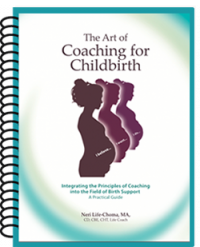
Empowering Black Birthgivers!
Throughout history, black women have suffered from medical exploitation, neglect, and mistreatment during childbirth. This has left a long-lasting impact on contemporary healthcare disparities, resulting in higher rates of maternal and newborn mortality and complications among black birthing individuals. Educational initiatives have been taken to address this situation within birth support. These initiatives rely on two primary strategies – acknowledgment and education. With this article, you’ll discover the power of transformational prenatal coaching in empowering black birthgivers and tackling the root cause of the situation – authoritative relationships.
Understanding the Historical Context
To understand the significance of using transformational prenatal coaching as a strategy for addressing these disparities and challenges, it’s crucial to acknowledge the historical context of black maternal health in the United States. From the era of slavery to the present day, black women have been subjected to medical exploitation, neglect, and mistreatment during childbirth. The legacy of this history continues to influence contemporary healthcare disparities, including higher rates of maternal mortality and complications among black birthing individuals.
Black women’s maternal care disparities are not entirely due to a lack of knowledge or rights, but stem from authoritative relationships
Birth Support practices have evolved in response to these disparities in the past decade. Recognizing the unique needs and challenges faced by black birthing individuals, many black women have become doulas and childbirth educators. They have encouraged the entire community of birth support professionals to offer specialized services to empower this community. However, in my mind, this evolution didn’t address the root cause of the situation, which is the relationships caregivers establish with black patients – authoritative relationships.
Acknowledgment, Sensitivity, and Education
Birth support professionals are increasingly undergoing training and education to ensure they understand and acknowledge the cultural nuances, historical traumas, unique experiences, and special needs of black birthgivers. The presumption is that this new understanding will help them empower black individuals through knowledge and advocacy. Educating black expectant mothers about their rights, options, and resources is assumed to empower them to make informed decisions during childbirth and navigate the healthcare system effectively.
Alarming stats show that knwoledge and advocacy didn’t succeed in improving maternal care even among white women
When considering the broader scope of birth support practices, the underlying assumption and the methods used to remedy the disparities are surprising. These same strategies and assumptions didn’t help us lead the change in maternal care white individuals receive, so why do we continue doing the same with black patients who are even more likely to be exploited and mistreated?
In 2018, following almost five decades of childbirth education and doula support, Listening to Mothers in California Survey showed 74% of all birthgivers agreed childbirth should not be interfered with unless medically necessary, but only 5% of them succeeded in giving birth without “major” medical intervention. These alarming statistics were not found among the black community, and they are the reason I firmly believe that the root cause for the low impact we have had is that we continue to assume knowledge and education are keys to creating change while the key has constantly been changing the relationships birthgivers enter with caregivers. Which strategies can help birth support pros tackle the root cause and empower black birthgivers to claim their healthy and satisfying birth experiences?
The Four keys Transformational Coaches Utilize to empower black Individuals undergoing the childbearing process
- Shift the focus to prenatal coaching conversations: We recognize that addressing predetermined beliefs and perspectives, automatic habits, and limiting beliefs, rather than providing knowledge, are the keys to changing black and white) women’s submissive behavior. This coaching process is achieved prenatally in a series of 4 to 8 prenatal coaching sessions.
- Asking coaching questions: coaches ask questions on top of delivering knowledge. By doing so, we subconsciously convey the message that birthgivers’ values, beliefs, needs, and desires are invaluable to their healthy birth process and should be integrated into the treatment plan.
- Establishing partnerships with birth clients: Transformational birth coaches utilize various strategies to establish partnerships and avoid engaging in authoritative relationships with our clients. By doing so, we train our clients to expect their medical caregivers to develop the partnership needed to change the current situation.
- Fostering clients’ commitment: Transformational birth coaches engage birth clients in actions. Every prenatal conversation must end with a call to action – after exploring clients’ options, we end the conversation with a step the clients commit to so they are closer to having a healthy process.
Curious to learn more about Transformational Prenatal Coaching? Join Birth Coach Method’s private Facebook group
Conclusion:
The new awareness and sensitivity of birth support professionals is a significant step towards empowering black birthgivers and addressing longstanding disparities in maternal health. Transformational birth coaching offers strategies for empowerment that tackle the root cause of these disparities, leading individuals to navigate their way within maternal care and the general health system with confidence, dignity, and agency. As this paradigm shift from informing toward coaching continues and spreads, it will offer hope for a future where all mothers, regardless of race or background, can experience childbirth with equity, respect, and support.
- Overshadowing the Transformative Essence of Childbirth with Data - July 10, 2024
- Navigating the Epidural Dilemma - May 28, 2024
- Informed Decision in Birth Support: A Myth of Empowerment? - April 29, 2024
medical interventions in childbirth, prenatal, prenatal coach


